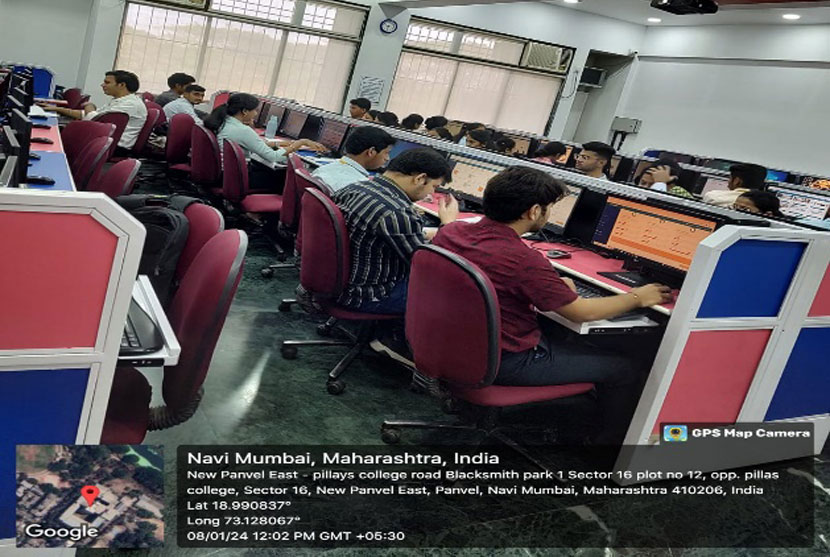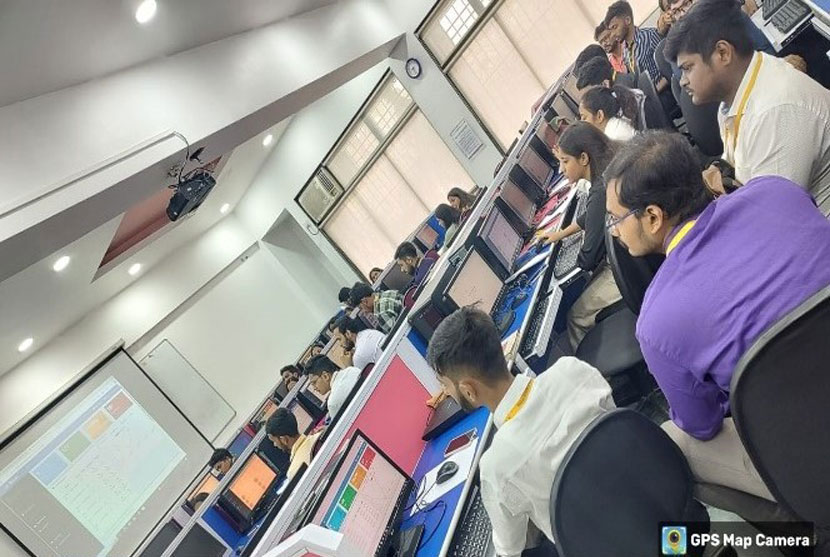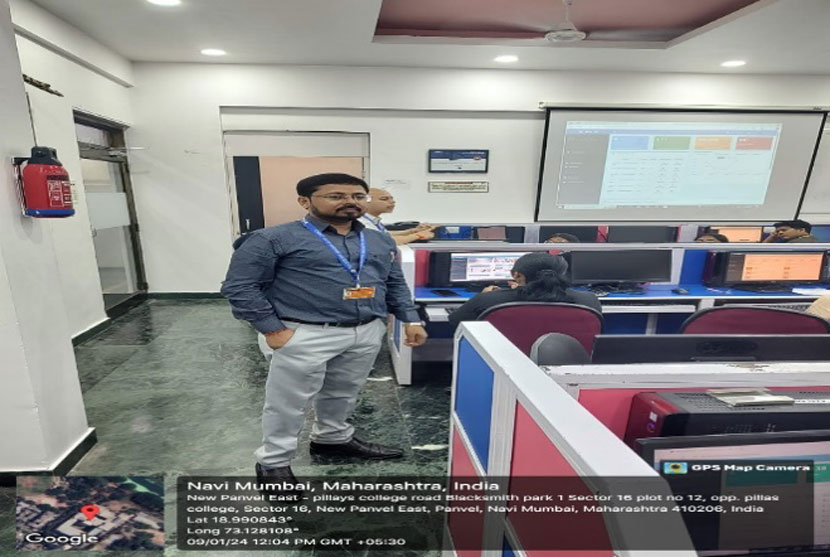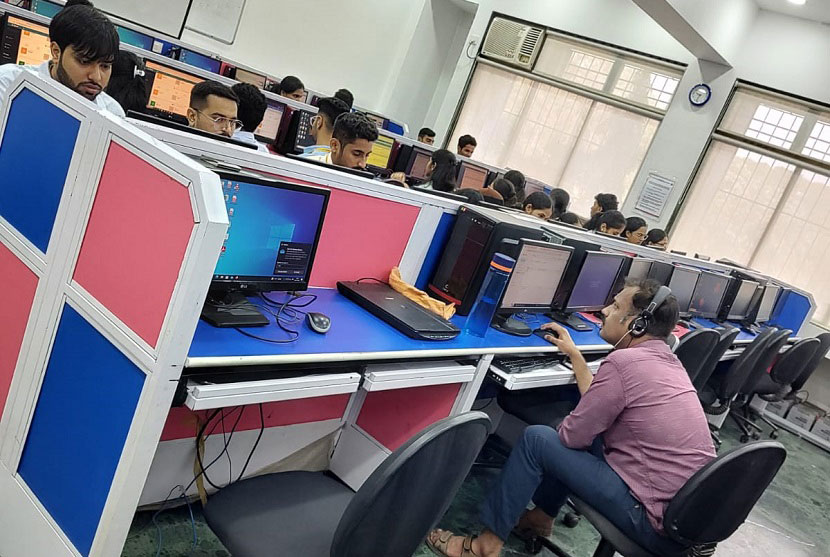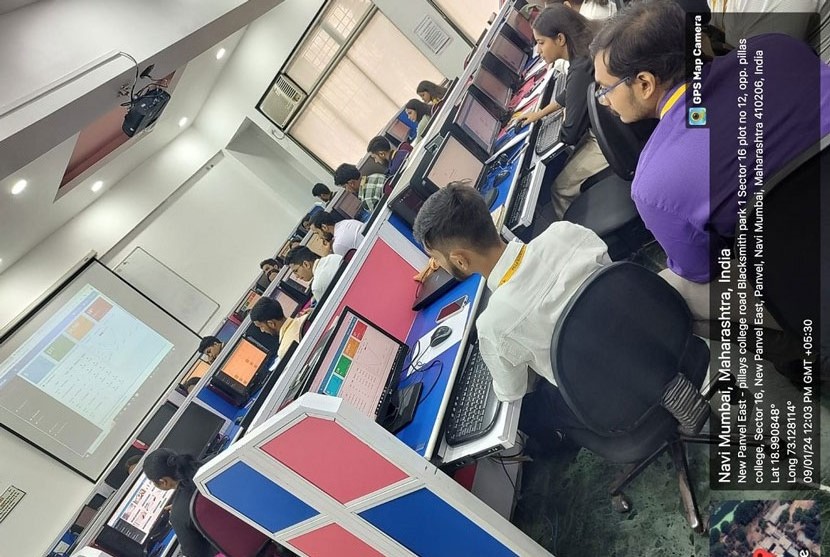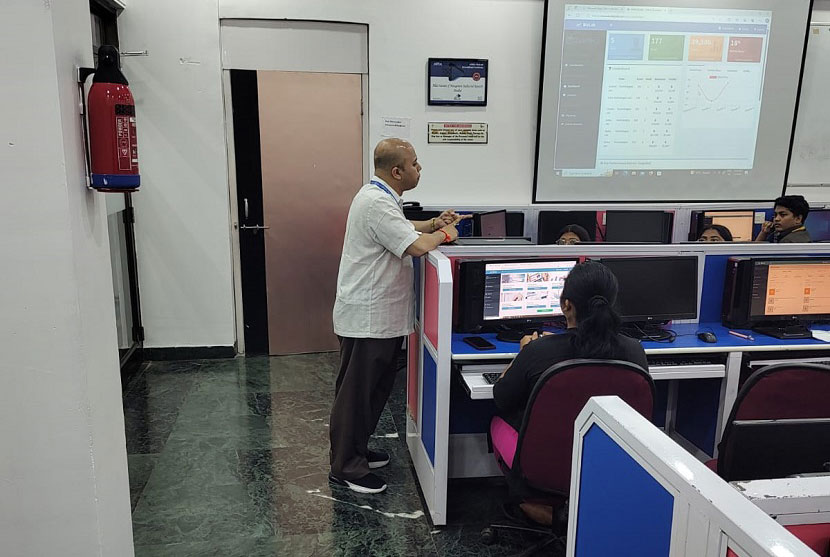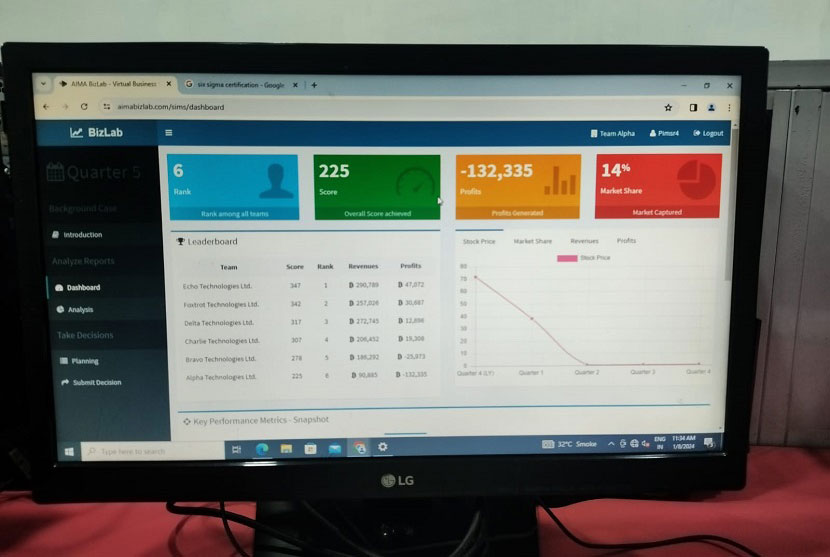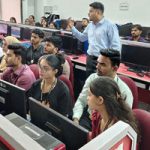Introduction:
On 8th and 9th January, 2024, Pillais Institute of Management Studies and Research hosted a comprehensive Business Simulation Game Training Session. As a participant in the game the experience was both enlightening and transformative. The training, conducted under the guidance of Mr. Abhimanyu Roy, provided a unique opportunity to delve into the intricate world of business decision-making through a simulated environment. This report encapsulates my firsthand experience, reflecting on the objectives, the learning outcomes, and the overall impact of the training on my understanding of strategic management. The immersive nature of the simulation game not only heightened my awareness of real-world business challenges but also honed my ability to navigate complexities and make informed decisions. This introduction serves as a precursor to a detailed exploration of the invaluable insights gained during the training, contributing to my growth as an aspiring business professional.
Venue
Time
Instructor
Coordinator
Pillai Institute of Management Studies and Research, IT lab
10 a.m. to 4 p.m.
Mr. Abhimanyu Roy
Dr. Pushpendu Rakshit
Objective:
The primary objective of the Business Simulation Game Training was to bridge the gap between theoretical knowledge and practical application in the realm of business. Students were encouraged to engage in a dynamic and simulated business environment, allowing them to make strategic decisions, face challenges, and witness the consequences of their choices in a risk-free setting.
Learning Outcomes:
- Strategic Decision-Making: The simulation game provided a platform for students to make strategic decisions related to marketing, finance, operations, and human resources. This hands-on experience enhanced their ability to analyze situations, weigh options, and make informed choices.
- The individual competency: Focused simulation game is designed for students to compete with AI-driven organizations. It emphasizes honing individual skills, strategic decision-making, and adapting to challenges posed by advanced technologies. Students gained insights into navigating a competitive landscape and enhancing personal proficiency in a dynamic environment.
- Risk Management: Participants gained insights into the complexities of risk management in a business context. Through the simulation, they experienced the consequences of risk-taking and learned to develop strategies to mitigate potential pitfalls.
- Financial Acumen: The simulation game included financial components, allowing students to manage budgets, analyze financial statements, and understand the impact of financial decisions on overall business performance.
- Adaptability: The dynamic nature of the simulation game challenged students to adapt to changing market conditions and unforeseen challenges. This experience honed their ability to think on their feet and adjust strategies in real-time.
Conclusion:
The Business Simulation Game Training at Pillais Institute of Management Studies and Research proved to be a highly effective and engaging learning experience for the participating students. The hands-on approach provided a unique opportunity for them to apply theoretical knowledge in a simulated business environment. The guidance of Mr. Abhimanyu Roy, coupled with the coordination of Dr. Phushpendu Rakshit, ensured that the training was both educational and enjoyable. As students move forward in their academic and professional journeys, the skills and insights gained from this training are expected to contribute significantly to their success in the field of business.
In conclusion, the Business Simulation Game Training was a resounding success, fostering a deeper understanding of business concepts and equipping students with practical skills that will serve them well in their future endeavors.

